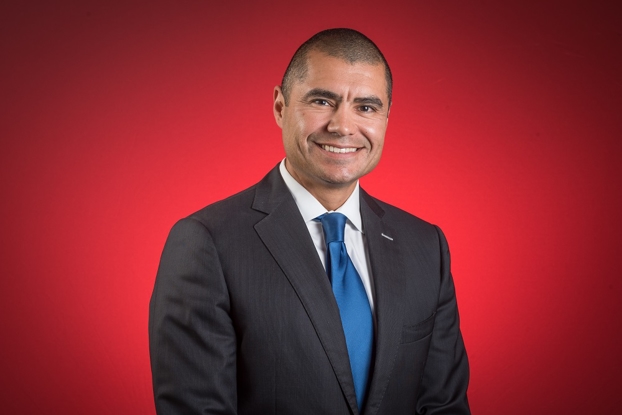Providing family-friendly sensory experiences for children with autism spectrum disorder
- Category: General Health, Living Well, Mental Health, Parenting, Keep Kids Well
- Posted on:
- Written By: Dr. Koren Boggs, Clinical Psychologist, The Autism Center at Children’s Hospital New Orleans

Having been back in New Orleans for 10 years, I’m one of thousands of New Orleanians who eagerly anticipate the Beignet Fest in September, the annual premier food festival that celebrates one of New Orleans’s most iconic treats: the beignet. Since 2016, Children’s Hospital New Orleans has been a proud partner and sponsor of the festival. In partnership with Beignet Fest Foundation, proceeds from this event support a number of programs for children with autism and their families.
As a clinical psychologist at The Autism Center at Children’s Hospital, I work with many children with autism spectrum disorder who also have developmental delays. When I see children and their parents enjoying themselves at the festival, it brings me great joy to see the bright smiles on their faces. From live music to sampling dozens of different beignet dishes to an inclusive Kids Village, there are amazing sensory-friendly experiences for children of all ages and all abilities to enjoy.
Exploring the world around them
Children are intuitive, and they naturally use their senses to explore and make sense of the world around them. They taste things. They touch and feel new textures. They smell new scents, and they see and hear new sounds as they engage in their surroundings. The outside world shapes a child’s development (i.e., language, cognitive and problem-solving skills and social interactions) through sensory experiences. Providing opportunities for children to use their senses as they explore their world through sensory play is critical to brain development. Research shows sensory play builds pathways between nerves within the brain, which enables a child to complete more complex tasks. It’s important to introduce a variety of different forms of sensory play to kids as early as possible.
Sensory play refers to any activity that stimulates your child’s senses. Depending on your child’s age, some activities may include exploring textures that are squishy like slime, playdough, or bean bags. Participating in sensory scavenger hunts or going on nature walks can be great opportunities for sensory experiences outdoors. Playing with musical instruments to create different sounds or engaging in story time are wonderful ways to engage your child’s senses. Sensory play encourages children to explore the environment around them.
Sensory experiences and children with autism
Sensory experiences can be different for children on the autism spectrum. Many children with autism experience sensory sensitivities. For instance, they are more hypersensitive to loud sounds or bright, flashing lights. They may feel extreme discomfort being in large crowds. Certain smells and textures might bother them. Children with autism can also be highly sensitive to touch and texture against their skin or they can seek touch, squeezes, and deep pressure. In addition to this, many of these children may also experience sensory overload or become emotionally withdrawn when faced with extremely overwhelming situations.
Individuals with autism also have different preferences for sensory engagement and it is important to take their preferences into consideration when engaging them in sensory play. Certain activities that are comfortable to us may be uncomfortable to them. So, when introducing sensory-friendly activities to a child, it’s important to gauge the response of the child. If you are singing a song and they cover their ears, then maybe the song isn’t the way to engage with them at that moment.
Alongside sensory sensitivities, children on the autism spectrum have a lot of sensory interests as well. Respecting and understanding a child’s sensory interests and sensitivities can be extremely beneficial in engaging children. If you are teaching a child who is very sensitive to sounds and lights, you may want to dim the lights and provide noise-cancelling headphones so the child can still participate in the learning activity. If you are teaching your child about numbers, and your child likes trucks or things that spin like wheels – rather than counting blocks – you might use trucks or wheels to engage in that learning activity. As parents, knowing a child’s sensory preferences and aversions can help you create an environment that encourages more interaction and engagement.
Creating an inclusive sensory-friendly environment
Based on my interactions with families of children with autism – especially those who have sensory sensitivities – many families feel a sense of isolation at times. Ordinary experiences like going to a football game, watching a movie at the theater, or eating at a restaurant can be challenging. Some families avoid community gatherings because their child may not be able to enjoy the experiences.
However, it is reassuring to know that more and more communities are creating an atmosphere of inclusivity by offering sensory-friendly activities to accommodate the needs of children with sensory sensitivities. A great example of this is the silent disco where we had a live deejay entertaining the crowd. The silent disco was a group activity everybody could participate in, whatever way was most comfortable for them. Under the disco tent, the kids wore headphones, and they could adjust the volume level. Everyone participated in the same activity and adapted it to their personal liking. By doing this, the event organizers provided these families with the opportunity to participate in the community in a way that was important and meaningful to them. Inclusivity is about respecting diverse perspectives and experiences, and not expecting things to be the same way for everyone.
In New Orleans and surrounding areas in Louisiana, there are many places in the community that offer sensory-friendly learning activities for children with autism and other special needs. If you are looking for a fun sensory-friendly excursion for your child, here are several places to consider:
- Louisiana Children’s Museum(LCM) in New Orleans offers low-sensory friendly playtime experiences on the first Thursday of each month where children with sensory-specific needs can explore the museum without the noise, crowds, and stimulation of typical open hours.
- Audubon Nature Institute offers sensory Sunday activities at the zoo, aquarium, and Louisiana Nature Center for kids who benefit from accommodations such as calmer environments and hands-on sensory activities before facilities open to the public.
- Knock Knock Children’s Museum (Baton Rouge) hosts a monthly low sensory program allowing children to experience and enjoy the museum’s learning zones without the noise and large crowds. This program is an exclusive event for children with autism or sensory processing differences to have a fun, interactive experience in a comfortable environment.
Many libraries in New Orleans offer story time featuring books, songs, and engaging play designed to be sensory and autism friendly. Visit the New Orleans Public Library website for more details.
If your child enjoys movies, AMC partners with the Autism Society to provide sensory friendly films for kids with special needs. These offerings occur the second and fourth Saturday of every month. Be sure to check your local listings or click on the link above for information about these services.
Supporting sensory learning for all children
In addition to collaborating with community partners, Children’s Hospital New Orleans has focused its efforts on promoting sensory-informed care to all children. As an active member of the Sensory Informed Care Task Force, I help educate and empower our staff to provide sensory informed care. It all goes back to truly understanding a patient’s unique sensory interests and sensitivities to provide the best care possible in a comfortable environment for children to participate in.
Another component of this initiative is letting parents know they can advocate for their kids. If your child has a special need or preference, talk to your child’s doctor or the hospital staff so they are aware of it in advance. For instance, if your child does not do well in a noisy environment, let them know the room needs to be quiet or the lights need to be dimmed down. These special requests on behalf of your child are completely appropriate and should always be honored and supported.
For more information about The Autism Center at Children’s Hospital New Orleans and to access educational resources for patients and their families, please visit our website:
https://behavioralhealth.chnola.org/programs-services/the-autism-center/



